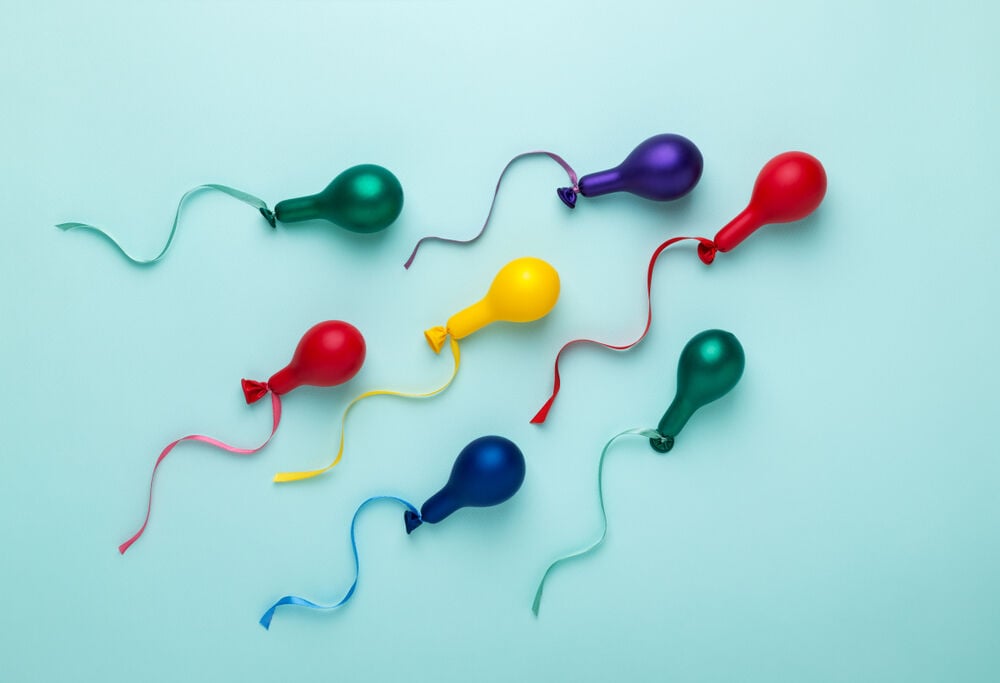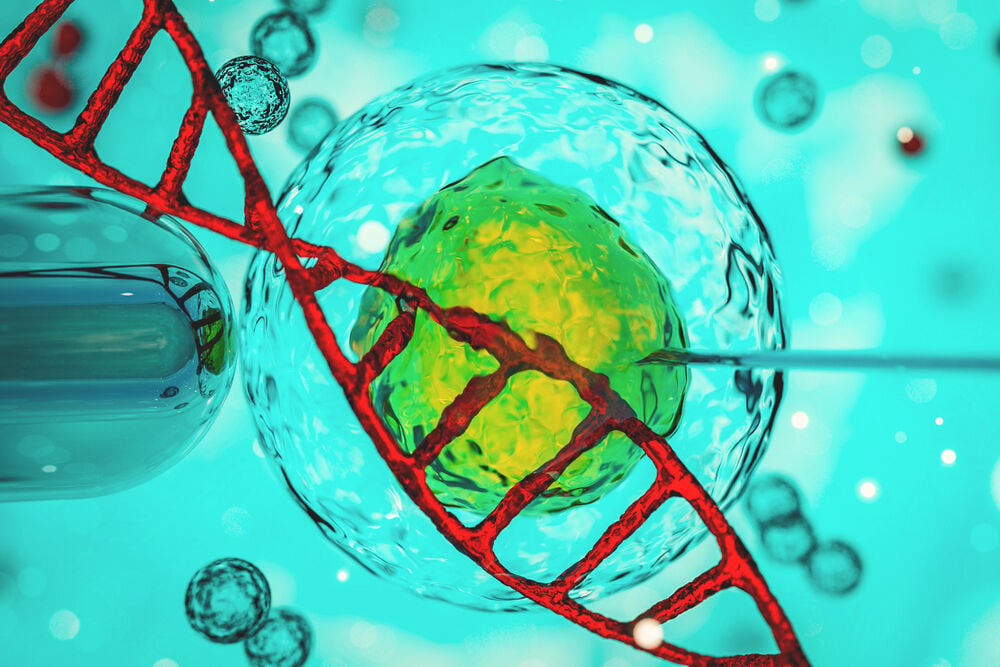-
Tracking cycle
-
Getting pregnant
-
Pregnancy
-
Help Center
-
Flo for Partners
-
Anonymous Mode
-
Flo app reviews
-
Flo Premium New
-
Secret Chats New
-
Symptom Checker New
-
Your cycle
-
Health 360°
-
Getting pregnant
-
Pregnancy
-
Being a mom
-
LGBTQ+
-
Quizzes
-
Ovulation calculator
-
hCG calculator
-
Pregnancy test calculator
-
Menstrual cycle calculator
-
Period calculator
-
Implantation calculator
-
Pregnancy weeks to months calculator
-
Pregnancy due date calculator
-
IVF and FET due date calculator
-
Due date calculator by ultrasound
-
Medical Affairs
-
Science & Research
-
Pass It On Project New
-
Privacy Portal
-
Press Center
-
Flo Accuracy
-
Careers
-
Contact Us
8 Things You Need to Know About Egg Donation


Every piece of content at Flo Health adheres to the highest editorial standards for language, style, and medical accuracy. To learn what we do to deliver the best health and lifestyle insights to you, check out our content review principles.
How does donating eggs work?
The following steps describe the process of egg donation.
1. Make an application
To enroll in an egg donation program, you must first fill in an application. In the application, you are required to provide details about your physical characteristics, your medical background as well as that of your family. Your educational background, your personality as well as your interests.
This information is necessary because some egg recipients select donors who possess similar characteristics and attributes to their own.
2. Get a medical evaluation
Once you have provided all the required information about yourself in the application process, the next step is to go for medical screening.
The egg donor agency you enroll with gets physician to do a physical examination which includes an ultrasound and blood test to check your potential egg count and your hormone levels.
Most agencies don’t charge for any screenings and neither do they ask for insurance information. So you don’t you have to deal with any costs.
3. Attend orientation
You may be required to attend orientation with a health care provider to discuss your medical exam results. The physician may also discuss your medical history as well as that of your family.
During orientation, the physician will explain to you how the donation process works. You can also address any concerns or questions that you may have with the doctor.
Take a quiz
Find out what you can do with our Health Assistant
4. Attend counseling
After orientation, you may be required to meet up with a counselor for a mental and emotional evaluation to determine if you are ready to donate your eggs.
5. Get approved
Once you receive a medical and psychological clearance, your profile is uploaded into a database that is only viewable by patients who are in search of an egg donor.
You may not get an egg recipient immediately. Some people never even get one at all. So exercise patience. But once the agency gets a match, the egg donation process will begin after which you’ll receive compensation.
Most egg donor agencies offer egg donors handsome compensations for egg donation. You could get an agency paying you up to $10,000 for a single egg donation. Most agencies allow up to 6 egg notations per person. So if you donate your eggs 6 times, depending on how much you are getting paid per donation, you could make a sizable amount.
What is the difference between egg donation and IVF?
IVF stands for in-vitro fertilization. It is a process where the male sperm and the female egg sperm are fertilized together in a test tube. The resulting embryo is inserted into the female’s uterus in order to achieve pregnancy.
The IVF procedure is ideal for men who can’t produce enough sperm or for females with fallopian tubes problems.
Egg donation is a process where one female donates her eggs to another female who is not able to produce healthy eggs or who has second infertility. There are numerous reasons why a woman may be unable to produce healthy eggs.
This could be an age factor. As a woman gets older, the quality of her eggs reduces. Smoking, obesity or being overweight and excessive alcohol drinking may also reduce the quality of a woman’s eggs.
But it’s not just lifestyle habits and age that can reduce egg quality. According to researchers, medical conditions such as pelvic inflammatory disease and endometriosis can reduce egg quality.
Are egg donations less common than sperm donations?

No. egg donations are far much more common than sperm donations. And these are the reasons why:
- Egg donors are paid more than sperm donors. An egg donor can get paid up range from 5.000$ to 10.000$ for a single donation, while a sperm donor may receive $75 or less. The disparity in compensation is due to the belief that when a woman donates her eggs, she is “giving a gift of life”. For this reason, egg donors are generally more valued than sperm donors.
- Sperm donors are expected to commit longer than egg donors and their activities are more restricted. Most egg donation agencies require a single donor to donate six times. But sperms agencies require a single donor to donate weekly for a year. Sperm donors are also asked to refrain from having sexual intercourse for 2 days before donation.
It is clear to see why men would feel discouraged to donate their sperm. In addition, sperm banks set high standards in regards to the quality of sperm making it even more difficult for men to donate.
What are the chances of getting pregnant after egg donation?
According to research donating eggs does not affect your fertility. So you shouldn’t have any problems getting pregnant after egg donation.
If you find that you are experiencing problems conceiving after egg donation, talk to your doctor. Chances are that your partner could be the one with fertility problems.
What are the egg donor requirements and qualifications?
The following are the basic requirements to donate eggs are the following.
- You must be between the ages of 21 and 31 – this is the standard age limit most egg donation programs use. The lower limit is to ensure you can enter into a contract legally. Women who are between the ages of 31 and 35 may also be accepted if they produce healthy eggs.
- You should have both ovaries
- No smoking, no current psychoactive drugs usage
- Psychologically and physically healthy
- BMI 19-29
- No using IUD or Depo-Provera injections
- Have regular menstrual cycles
- No family history of inheritable genetic disorders
- For your application to be a donor to be successful, you need to refrain from taking alcohol or drugs 2 months before making the application.
Not all egg donation programs have the same requirements. Others require that you are of a certain height and weight and that you are mature, responsible and trustworthy.
How many times can I donate?
Generally, many egg donation agencies allow egg donors to donate up to 6 times and not more in their lifespan. Of course, you can donate more, but keep in mind that egg donation is a long process that requires time and commitment.
Furthermore, egg donation agencies do not accept a single donor to donate more than 6 times to protect the donor from potential health risks.
Possible problems from donating eggs include:
Fertility drugs
If the agency finds a match, they will contact you. Before you can proceed with the process, you have to undergo medical screening. The agency has to screen for STIs and other diseases.
Once you are cleared, you are expected to inject yourself every day with a fertility medication called Lupron to suppress your natural cycle, so that your cycle and the recipient’s cycle synchronize.
However, fertility drugs may cause some side effects. Some more severe than others. Side-effects you may experience include headaches, nausea, bloating, and weight gain, allergic reactions, OHSS (ovarian hyper-stimulation syndrome), fluid in abdominal and/or thoracic cavity, future fertility impairment. Although rare, egg donation may cause a stroke or kidney failure.
Psychological distress
You may experience mood swings; however, this could be owing to the medication.
Ultrasound-guided egg retrieval
Some serious complications after this procedure may include infection, injuries of the blood vessels or bowel, bleeding.

Torsion
When you twist an enlarged ovary, this can cause severe abdominal pain. This is why most women are advised to avoid strenuous activities after the procedure. It takes about 7 or so days for the ovaries to shrink. So relax, eat well, and let your body heal.
Inconvenience
Some monitoring procedures during the period of stimulation, and the amount of time needed to perform the egg retrieval itself will result in a certain amount of inconvenience and lost time.
The side-effects associated with egg donation are usually not severe and they subside within a few days. But if you start to experience severe bloating, pain that does not improve even with medication, heavy vaginal bleeding, and unremitting vomiting, call your doctor immediately.
What about sex after egg retrieval?
After egg retrieval, you may experience some pain and discomfort. So avoid undertaking any tasks for a day or two after the procedure. This means no exercising, driving, and any other tasks your physical and mental ability.
When it comes to sexual intercourse, most egg donors are advised to avoid having sex for 72 hours following the procedure. If you have sex before the 72 hours are over, chances are you may experience more pain and discomfort.
Final thoughts
Egg donation is a process that requires you to be physically and mentally prepared. And although egg donors are well compensated for their donations, don’t let it be the primary reason why you want to become an egg donor. In any case, the money you get paid is taxed.
Keep in mind this process requires injecting yourself with fertility drugs that may have an impact on both your physical and mental health. Although the effects are not permanent, you should be ready to experience some physical changes.
But aside from all that, when you donate your eggs, you are helping another human being who is in need.


Hey, I'm Anique
I started using Flo app to track my period and ovulation because we wanted to have a baby.


The Flo app helped me learn about my body and spot ovulation signs during our conception journey.


I vividly
remember the day
that we switched
Flo into
Pregnancy Mode — it was
such a special
moment.
Real stories, real results
Learn how the Flo app became an amazing cheerleader for us on our conception journey.




